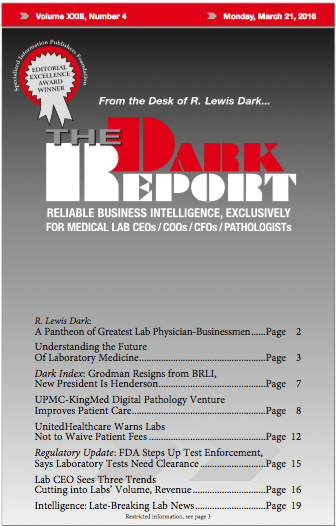CEO SUMMARY: Healthcare’s transformation is now far enough along that most clinical labs and pathology groups are either feeling the financial pain or are excitedly developing ways to deliver more value from lab testing services. On April 26-27, at the 21st annual Executive War College on Lab and Pathology Management, expert speakers will address how …
Understanding the Future Of Laboratory Medicine Read More »
To access this post, you must purchase The Dark Report.


